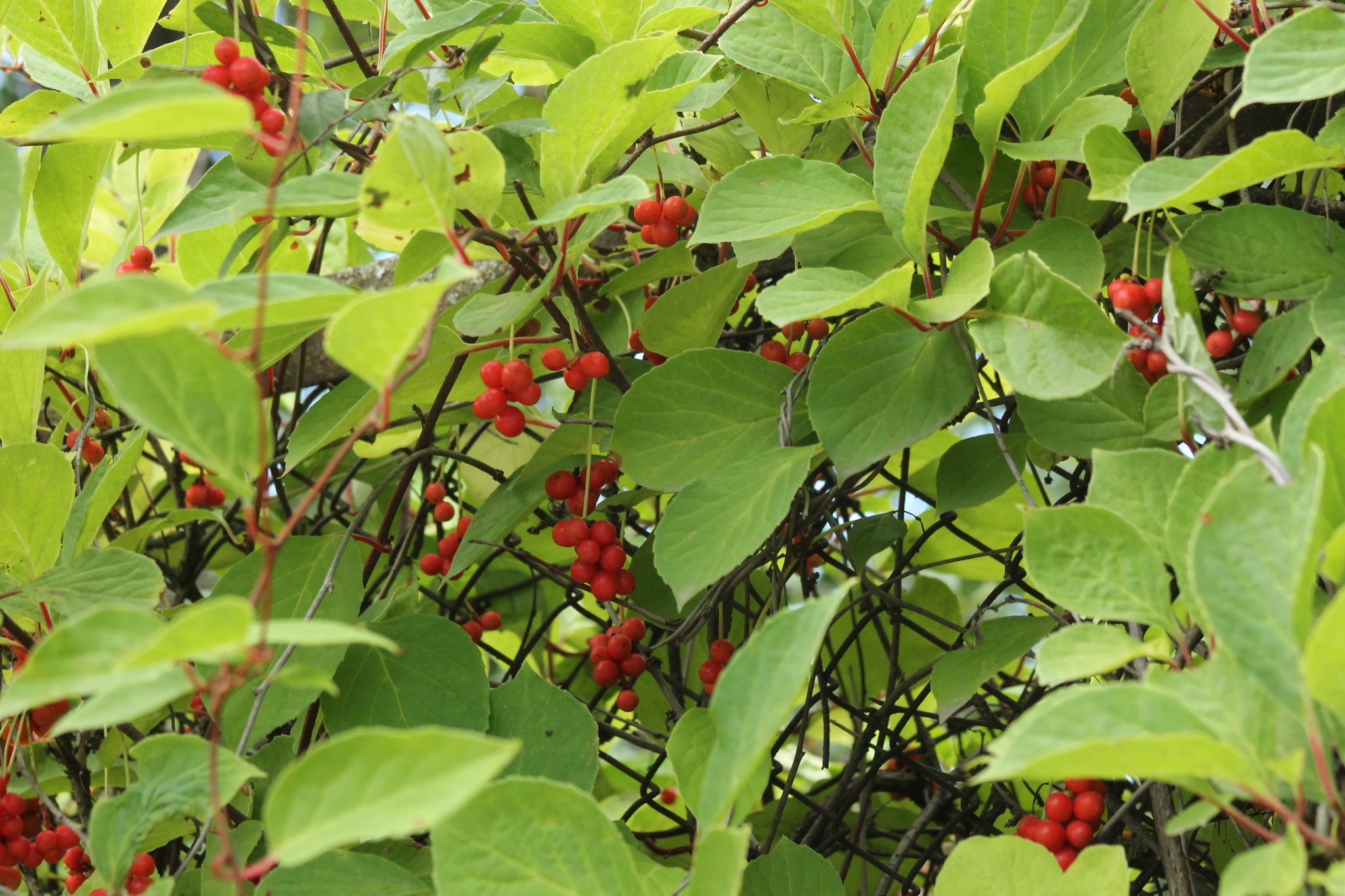Schisandra chinensis

Schisandra
Schisandra is a powerful adaptogenic berry used to strengthen kidney and adrenal function, enhance stamina and mental clarity, support respiratory and immune health, and protect and regenerate the liver. Its “five flavors” correspond to its broad therapeutic effects on the nervous, endocrine, reproductive, and respiratory systems.
Derived from Greek schizein (“to cleave”) and andros (“man”), referring to the divided anther cells. The Chinese name wu wei zi means “five-flavor seed,” describing its simultaneous sour, sweet, salty, bitter, and pungent qualities.
Schisandra is a highly effective kidney and adrenal tonic that increases sexual fluids, supports fertility, and helps manage spontaneous sweating, night sweats, incontinence, and diabetes insipidus. It enhances circulation to reproductive organs and strengthens the body’s resistance to stress, improving endurance, strength, and nonspecific immune response. Schisandra sharpens eyesight, hearing, night vision, reflexes, and cognitive performance, and improves tolerance to extreme temperatures. It has both calming and stimulating effects depending on the person, improving mental efficiency without the excitatory qualities of caffeine.
Seed extract protects the adrenal and thymus glands, supports lung Qi, deepens inhalation, and treats chronic cough, wheezing, and asthma linked to lung–kidney deficiency. Used preventatively before allergy season to reduce reactivity and relieve post-nasal drip and nighttime snoring. Supports immune function, increases antibody formation, protects against chemotherapy effects, and inhibits drug-resistant cancer cell behavior.
Schisandra is a major liver restorative, stimulating hepatic protein synthesis, glycogenesis, detoxification enzymes, and estrogen breakdown, useful for viral hepatitis, chemical hepatitis, endometriosis, and estrogen-related cancers. As a calming yin tonic, it eases insomnia, dream-disturbed sleep, palpitations, anxiety, and nervous irritability. It improves mood in individuals depleted by chronic stress. Schisandra regulates stomach pH, supports ulcer prevention, promotes bile secretion, and enhances gastric motility.
Used in traditional Chinese medicine for more than 5,000 years and historically reserved for wealthy or noble families due to its rarity. Considered one of the most important qi-preserving and longevity-promoting herbs in East Asian medical traditions.
A dioecious woody vine with deciduous elliptic leaves (3.5–8 cm long) on glabrous petioles. Flowers are solitary at the axils of short-lived bracts. Both male and female flowers have 5–9 yellow-white tepals; male flowers usually have five stamens, while female flowers have 14–40 separate carpels. These develop into a single pendulous spike of many fused berry-like fruits resembling a cluster of grapes. Each fruit cluster arises from a single flower.
Discontinue use during acute viral or bacterial infections (cold, flu, bronchitis, pneumonia, skin rashes). May cause heartburn or stomach upset due to tannins if berries are not soaked prior to preparation.Avoid during pregnancy and lactation due to mild uterine-stimulating effects.
Tincture:
- Fresh berries 1:2 (95% alcohol)
- Dry berries/seeds 1:5 (60% alcohol)
10–90 drops, 3× daily
Glycerite:
Dry berries or seeds 1:5 (40% glycerin / 30% alcohol / 30% water)
10–60 drops, 3× daily
Tea:
Hot or cold infusion, or decoction
8–12 oz, 3× daily
Christa Sinadinos, David Hoffman, Bryan Bowen, all relevant CHSHS lectures.